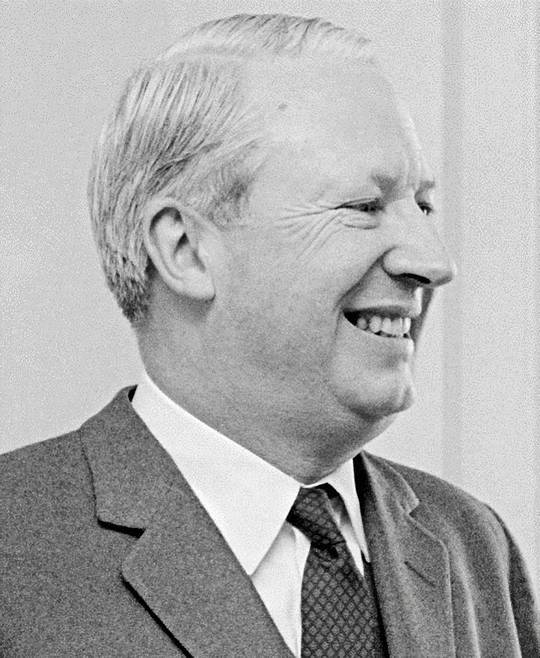Heath’s (1916-2005) background was a touch more plebeian than Wilson’s – his father was a carpenter – and his intellect was less stellar, gaining a second-class degree in the inevitable PPE at Balliol College, though to be fair Heath also became President of the Oxford Union and was Balliol’s Organ Scholar. He spent his Oxford years supporting left-wing causes, including the Spanish Republicans, while he opposed Quintin Hogg (1907-2001), the Conservative candidate at the post-Munich Oxford by-election.
After a war that was administratively distinguished (he ended as a Lieutenant-Colonel) but saw little action, Heath won election at Bexley in February 1950. His early service was in the Whips’ office, becoming Chief Whip in December 1955. Later he was much liked by Macmillan and promoted rapidly, acting as chief negotiator in Britain’s EEC bid of 1961-63 and abolishing Retail Price Maintenance under Home. On Home’s resignation in 1965 he was selected as Conservative party leader, being essentially a Wilson clone without the superior intellect or the people skills.
Losing three elections out of four, Heath was prime minister for less than four years, winning the 1970 election on the free-market “Selsdon Man” platform and then abandoning it. He campaigned against Enoch Powell (1912-98), the one truly creative thinker in the party, and left him out of his government. Apart from the equivocal achievement of joining the EEC at the third attempt, Heath’s government was undistinguished. It made a bad situation in Northern Ireland worse, failed to reform trades unions and through unwise money printing and budget deficits created a highly damaging secondary banking bubble and a huge surge in inflation, made more unpleasant by its failed wage and price controls.
Then Heath lost a confrontation with the Miners’ Union after plunging the country literally into darkness, not surprisingly losing the snap election he called on the issue. The electorate, pompously called to answer the question “Who governs?” responded “Not you, mate.”
The choice between Macmillan, Heath and Major for the very bottom place on this list is an argument of theological abstruseness. He is somewhere down there, though, on the “more harm than good” criterion.
